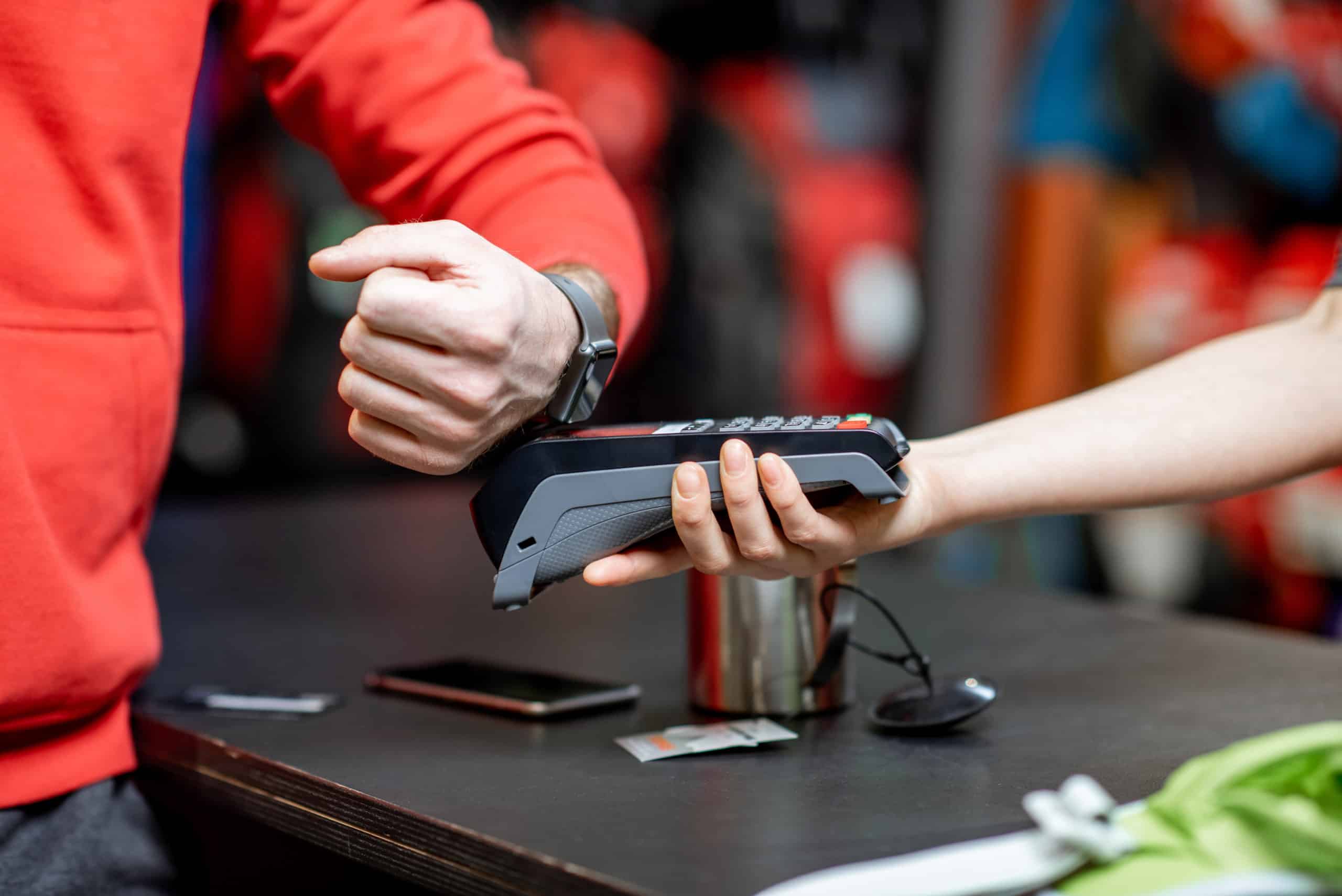Apple Pay had more than 500 million users in 2020, and that figure is expected to continue growing. While the mobile payment system is growing in popularity, many merchants are still unsure of how Apple Pay will affect them and their bottom line.
How Does Apple Pay Work?
Apple Pay is a mobile payment system and a digital wallet service. It allows users to make payments to businesses on the web, in-person and through iOS apps. Users connect their Apple Pay accounts to their credit cards or bank accounts, allowing for quick and easy payments from virtually anywhere.
How are Apple Pay Payments Processed?
When a customer makes a payment through Apple Pay, the system uses a device-specific number as well as a unique transaction code to process the payment. Card numbers are never stored on devices or on Apple’s servers. Card numbers aren’t shared with merchants either.
Payments made through the web browser or iOS apps are processed similarly to how e-commerce and mobile payments are processed.
For in-person payments, users only need to hold their iPhones near the contactless reader to make a payment. It’s a quick and easy process that saves time for both merchants and customers.
Do Merchants Have to Pay to Accept Apple Pay?
Apple Pay seems like a convenient payment option to accept, but costs are usually the first thing that comes to mind for merchants. Will you have to pay to accept Apple Pay? No.
Transactions made through this payment system are similar to regular credit card payments. Your typical processing rates will still apply when accepting this type of payment, but there are no additional fees for accepting Apple Pay.
Apple Pay charges credit card issuers 0.15% of transactions to guarantee the tokenization is secure.
Is Apple Pay Secure?
Yes. Apple Pay uses tokenization to ensure that transactions are secure. The user’s credit card information is never shared with the merchant, nor is it stored on Apple’s servers. That makes it even more secure and private for users.
Furthermore, Apple Pay requires a fingerprint or passcode authentication to process a transaction, so the risk of fraud is lower.
How Do You Accept Apple Pay as a Merchant?
Businesses that wish to start accepting Apple Pay will need an NFC-enabled payment terminal. Most modern payment terminals are NFC-enabled, so most businesses should be able to accept Apple Pay without having to invest in new hardware.
For merchants, this is really the biggest obstacle in determining whether Apple Pay is a good fit for them. In addition to ensuring that you have the right hardware, you will also need to train staff on how the system works.
Because there are a few hurdles to accepting this payment method, some merchants are still unsure of whether they should accept Apple Pay. Is it worth it?
Why You Should Accept Apple Pay
It’s in the best interest of merchants to accept Apple Pay if they have the capability to do so. Here’s why:
- It’s a secure payment option.
- It gives your customers more flexibility and freedom when making payments.
- It saves time (transactions are quick to process)
Speed and security are the two greatest benefits, but offering more payment options will also help you attract new customers.
If you need more reasons to start accepting Apple Pay, consider the fact that you will be falling behind the competition if you don’t. Apple Pay’s user base continues to grow, and payments through mobile systems such as these are becoming increasingly more common.
The Growth of Apple Pay
Apple Pay’s growth has many doubters in the industry in shock, and it’s a technology that consumers are adopting at a high rate. A few of the many Apple Pay statistics that every merchant should consider are:
- 93% of phones in the US have access to Apple Pay
- 48% of people that use an iPhone have Apple Pay setup
- Apple Pay is used by over 500 million people worldwide
- Apple Pay holds a 43% share of the US mobile payment market
In the United Kingdom, 63% of people have used the platform at least once to make a purchase at a restaurant or store. Apple has done an amazing job in recent years to ensure that Apple device owners have access to Apple Pay.
The growth of the mobile payment method continues to increase year over year and is only going to increase as more users want an effortless, secure method of payment.
Risks of Accepting Apple Pay
If you accept Apple Pay, what risks does it pose compared to a credit card? Apple Pay uses multi-layer security measures to keep data safe. A few of the security measures that exist on the platform include:
- Face ID
- Touch ID
- Passcode
- Data encryption
When a credit or debit card is added to Apple Pay, the account details are not stored on Apple’s servers. This means that the card’s details are not found on the physical phone or the company’s servers. The device that you use will also have some of its information stored, but this information is not encrypted.
Device-specific information is stored on the device’s chip, and it’s an additional security measure to verify that the device is associated with the owner of the card.
If a customer uses Apple Pay, they also benefit from the card’s inability to be skimmed.
Credit card skimmers are placed on many card readers and often go undetected by the customer. When they swipe their card, data is sent back to a hacker or thief that will then use the credit or debit card or sell the information to others, often on the Dark Web.
Mobile wallets, like what Apple Pay is, cannot be skimmed.
Users do have some control over their Apple Pay security, which is a good and bad thing. For example, users can use a 4-digit passcode to enter their phones. In this case, if someone steals the physical phone, they can clone the device and crack the passcode, which has 9999 combinations.
However, it’s far more complex to break through biometric security measures, such as a fingerprint or Face ID. If the customer is using either of these security measures, Apple Pay is likely safer than a debit or credit card.
Final Thoughts
Years ago, merchants were questioning whether they should accept Apple Pay and what this would mean for their business. Now, the platform offers a valid way of payment that comes with additional security measures missing from card payments.
If you want to begin accepting Apple Pay, contact us to see how we can help.





